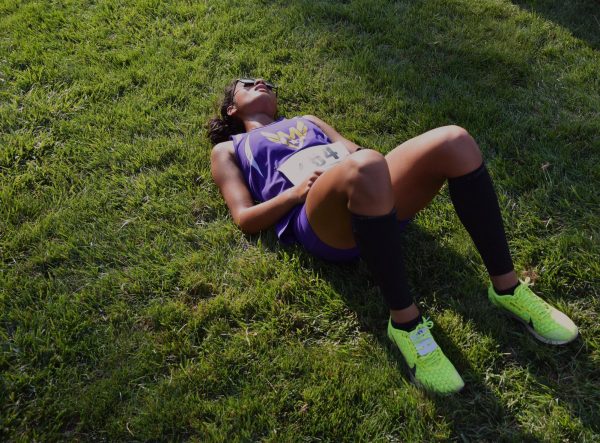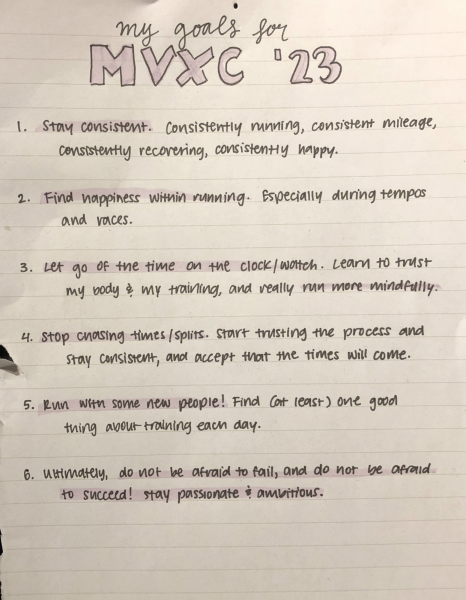My final thought before I crossed the finish line was “I won’t make it.” I don’t quite remember the first few seconds after I finished my race, but somehow, in my adrenaline-induced haze, I ended up sitting on the side of the track, hugging my knees to my chest as I gasped for air.
Roughly 20 minutes prior, I had been curled up in the same position, rocking back and forth crying. The goal I set the day before, to run a personal record of under 12 minutes, had initially caused some anxiety on how I would perform during the race. But the flutter of butterflies soon turned into huge, powerful wingbeats that made my hands shake and my knees weak. My initial excitement to race quickly became a crippling nervousness.

I never ended up setting that personal record. I came heartbreakingly close — a mere 0.01 of a second slower than my fastest time, but the official time, 12:19.48, served as an aching reminder that I didn’t “make it.” For the rest of the day, I was filled with shame and frustration — how could I have not been just a fraction of a second faster in the eight lap race? All I had to do was start a little faster, or push the pace a bit more or maybe even lean at the end to cause the timing system to register a faster time.
Time went on and I raced again and again, setting plans for my desired lap times and entering each race with the mindset that “I would set a personal record today.” Race after race, I glanced at the clock every lap, and even during workouts, I found myself checking my pace on my watch nearly every minute.
Eventually, I began to notice a trend: every time I looked at my watch and saw a time I didn’t want, my mindset would take a turn for the worse. “Keep going” became “you can’t do it” and “you’re slowing down,” and that’s when I’d crash. Physically, I was fine — I found myself catching my breath relatively quickly after races. However, I somehow acquired a mental block that I just couldn’t shake, and it was causing me to race times that didn’t reflect my actual fitness level.
After one particularly rough workout — one in which I ran nearly two minutes slower than my goal time after mentally crashing during the last mile — I ended up reflecting on the run and wondering why I was crying over one small workout in the grand scheme of my high school running career. I realized that I shouldn’t have been shutting down every time I saw a time that I didn’t want.
I had developed a need to validate myself with the times on the clock — I was scared of seeing a slower time than I wanted because I associated not running the times I wanted with failure. My constant pursuit of PRs exhausted me, and not setting them made me feel bad about myself and running itself. Instead of feeling the familiar rush of adrenaline every time I raced — which is what drew me to running in the first place, I soon found myself dreading races instead of looking forward to them, and lost the joy I felt while running.
Ultimately, I realized that I shouldn’t let my ambition to PR get in the way of my mental health or my love for running. Although the idea of setting new PRs does motivate me to train harder, I don’t need validation from the time to stay passionate about running — I can be proud of my effort even if I don’t PR.

In hindsight, the race in which I ran 0.01 of a second slower than my PR wasn’t a bad one. In fact, I think it was arguably my best race of my season. I’m proud that I raced at all, despite being at a low point mentally, and am even prouder that I was able to finish the race.
Before this year’s cross-country season, I set a goal to find happiness within running again, but outside the times. I committed to changing the way I mentally approached running — by running with new people, finding one good thing about practice every day and by practicing gratitude before races instead of pressuring myself to run a PR. I am slowly learning that being proud of an effort but still wanting to run a faster time are not mutually exclusive, and that one race time shouldn’t be the determining factor of my mindset. I am happy to say that I am regaining my love for running again, one race at a time.











